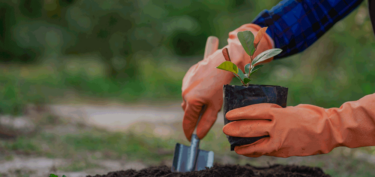
Share this article
In 2015, UNESCO published “RETHINKING EDUCATION: TOWARDS A GLOBAL COMMON GOOD?“, a call for dialogue inspired by a humanistic vision of education and development, based on the principles of respect for life and human dignity, equal rights and social justice, respect for cultural diversity, international solidarity and shared responsibility.
This publication was developed in a context that endures today – in a world characterised by levels of unprecedented complexity and full of contradictions, a world that needs to implement a change in its model of consumption and in its relationship with nature’s resources in order to be sustainable. These changes, and these contradictions, must be faced from an educational perspective in order to provide tools and train individuals and communities to adapt, respond and successfully face the future.
The publication also presents education as a transformative tool that allows us to understand the context of our current global situation, and the risks and threats that surround us.
We can only act on the problem when we understand its seriousness and have the tools to deal with it. And education offers us both.
Environmental education to transform the world
At Anthesis we understand education as an opportunity to train both young people and adults to make responsible decisions, and to encourage critical thinking and transforming and committed attitudes to face the main environmental challenges.
The services and solutions we offer to address committed and transformative environmental education are not only limited to formal education contexts in schools, but also extend to citizenship education, that which accompanies us throughout our lives. We understand that citizenship training goes beyond the classroom and can be found in spaces that reach all types of audiences.
Through the conceptualisation, design and execution of workshops, educational programs, guided tours, interactive materials, educational games, etc., we promote responsibility towards sustainable practices for daily life and raise awareness of the main causes of climate change and the tools to address it. Environmental education also fosters skills such as critical thinking, problem solving and informed decision making.

A clear example of this type of educational process that goes one step further is Service Learning, which combines learning and community service processes in a single well-articulated project where participants are trained by working on real needs of the environment with the aim of improving it.
The symbiosis between learning and service creates a circular dynamic, where learning enhances the quality of service to the community, and at the same time, service gives meaning to learning by allowing what is learned to be translated into tangible actions in reality.
In this context, environmental education, beyond raising awareness and sensitising people, promotes the empowerment of citizens to participate proactively in the defense of the planet. At the end of the day, citizen empowerment is key to not only making changes in daily life and reducing environmental impact on an individual basis, but also to to pressure governments and companies to take more forceful measures, as well as to participate in an informed manner in open participatory processes.
Environmental Education at COP 28
In an effort to catalyze grassroots climate action, COP28 will dedicate one day to the theme of education. The day aims to empower young people to influence the outcomes of COP 28, recognising that they are the most threatened by the dangers of climate change.
The different initiatives that will be developed during the day will address the need for equitable representation, stronger participation mechanisms and the allocation of resources across the themes and policies addressed at the COP. Among the main themes are investment in youth-led innovation and entrepreneurship, inclusion in policy-making processes, strengthening of skills and knowledge, and educational transformation.
However, some initiatives go beyond the thematic day, extending over the entire 13 days of the event. UNESCO, in collaboration with the Ministry of Education of the United Arab States, as the secretariat of the Partnership for Green Education, will deploy a series of events to highlight the essential role of education in preparing students to address climate change. As a significant goal, the first-ever Green Education Center will be established, with more than 200 sessions organised to foster tangible actions and solutions through education. In addition, Alliance members will play a leading role in the dialogue and formulation of next steps, cementing a lasting commitment to environmental education.
Anthesis and citizen participation
From Anthesis, we contribute to inspire people to join processes of individual and collective transformation. Our track record supports us, with important collaborations that highlight our commitment to citizen participation.
We are the world’s leading purpose driven, digitally enabled, science-based activator. And always welcome inquiries and partnerships to drive positive change together.
